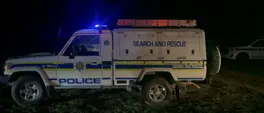Many local firms are in trouble: When should you start considering business rescue?
Paula Luckhoff
19 August 2025 | 18:36We speak to a specialist about the need for, and process of business rescue.

Business closed. Image: Pexels
The Money Show's Stephen Grootes interviews Eric Levenstein, Director and Head of the Insolvency and Business Rescue Practice at Werksmans Attorneys.
We know that South Africa's economic growth is stagnant, and that the implementation of the new US tariffs will create even more challenging conditions for companies.
Just how much pressure South Africa’s small and medium-sized businesses are under was revealed recently in the Small Business Growth Index for the first half of 2025.
More than half of them could be forced to shut down within the next year.
RELATED: Half of SA's small businesses risk closure in the next year
The data reveals that 55.3% can survive just one year or less under the current cost inflation conditions without outside help.
Stephen Grootes asks Eric Levenstein from Werksmans Attorneys about when it is that a firm should start considering business rescue, and the dangers of being in denial.
The test is always financial distress, says Levenstein.
And while many people don't understand what exactly that means, the Companies Act is very clear.
"If you can't pay your debts as a company in the ordinary course of your trading business; then directors have to take a good, hard and cold look at where they're going - are they able to continue to trade or should they be taking advice in relation to a possible business rescue filing?"
Eric Levenstein, Head: Insolvency & Business Rescue Practice - Werksmans Attorneys
"For example, if you have to pay your creditors on 30 days or 60 days or whatever the period might be, and you're not meeting those obligations in the ordinary course of business then, yes, you are financially distressed and you've got to look potentially at an intervention."
Eric Levenstein, Head: Insolvency & Business Rescue Practice - Werksmans Attorneys
In the case of small privately-owned businesses, they often see that people don't want to admit things are going badly, particularly when the company's been handed down over generations, Levenstein says.
"They trundle along and don't really understand whether or not they're in financial distress and maybe even ignore it when there's mounting evidence of that position."
Eric Levenstein, Head: Insolvency & Business Rescue Practice - Werksmans Attorneys
He emphasizes that the purpose of business rescue in South Africa is to maximise the likelihood of the company continuing to exist on a solvent basis.
Scroll up to the audio player to hear more about the need for, and process of business rescue
Get the whole picture 💡
Take a look at the topic timeline for all related articles.
















